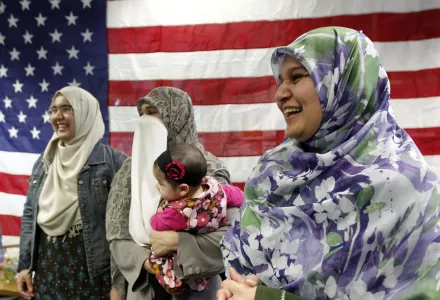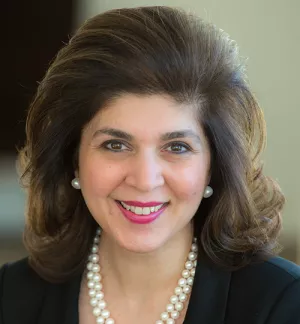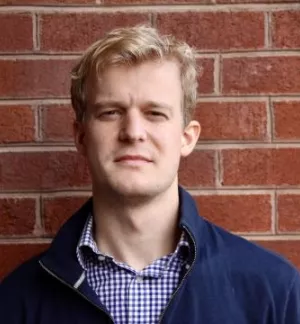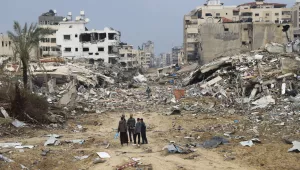
The anniversary of the September 11, 2001 attacks provides an important opportunity to reflect, to remember, and to mourn our losses, and the priority on this day should be honoring the victims and supporting their families. But it also offers a chance to review our responses, to gather and assess lessons learned, and to reflect on our own reactions to the tragic events in New York, Washington DC, and Shanksville, Pennsylvania. It is an opportunity to see the impact that misguided assumptions, hate, and fear have had on our societies.
Most importantly, it provides the opportunity to finally eradicate an ugly American tradition: the persecution of America’s minority communities scapegoated for international or domestic tragedies.
Post 9/11, U.S. Muslim communities sustained an onslaught of hate crimes, suspicion, and persecution. According to a 2016 report, hate crimes against Muslims were five times more frequent than before the attack, while rates of depression today remain disproportionately high within American Muslim communities. This issue remains raw. Gone are the days when American Muslims are just Americans. At every turn, in big and small ways, they feel as though they are “the other,” and even worse, having to “prove” their loyalty.
American Muslims were not alone in their anguish. Race relations after the attack too often devolved into an “us vs them” mentality, with belonging and identity more closely linked to race and religion than allegiance to country or opposition to terrorism. The Sikh Coalition, formed on 9/11 in response to attacks against the community, reported 300 hate incidents in the month after the attack. There was no nexus between Sikhs and al-Qaeda—the community was targeted simply because they were painted as an “other” at a time when somebody needed to be blamed.
The persecution of minority communities based on events happening in the world or at home is a tradition that has a powerful history linked to a diverse set of issues. During Reconstruction and its aftermath, lynchings in the name of defending white female “purity” were common. Decades later, World War II saw the U.S. government intern Japanese immigrants in camps throughout the West.
This longstanding American tradition has at least twice been displayed to frightening effect in the past year. In 2020, as the coronavirus pandemic, originating in Wuhan, China tightened its grip on the world, Asian American communities were caught in its political crosshairs. Last year Asian Americans reported roughly 3,800 “hate incidents,” including an attack in San Francisco of an elderly man of Thai heritage who was killed after being shoved to the ground.
And after the most recent flare-up of tensions between Israel and militants in the Gaza Strip, American Jews found themselves targeted. The Anti-Defamation League identified 17,000 tweets using variations of the phrase “Hitler was right” in the week after the crisis began.
One of the greatest strengths of our nation are the coalitions we are able to build: Civil society groups, educational organizations, philanthropic entities, and more. In times of great distress, our nation can either come together, or be motivated to lash out, to kill, to brutalize the perceived “other.” This has meant proactive organization has become essential. Since 9/11 dozens of new advocacy groups have been formed. In the past year, at least two separate organizations—the Asian American Foundation, for which one of the authors sits on the advisory council, and Stop AAPI Hate—have been stood up to help prevent hate crimes.
An optimist might point to such institutions as evidence of minority agency; but they are also tragic reflections of an urgent need to raise alarm and protect targeted communities. The United States prides itself for uniting the world’s persecuted and vulnerable in one safe, prosperous place. But these days, their safety—mental and physical—is too often endangered.
Since 9/11, the homeland security threat landscape has shifted. In the terrorism space, the urgent threat is now from Americans themselves radicalized by domestic architecture—white supremacists have devastated communities from Charleston, South Carolina, to Poway, California. Today’s terrorists are rarely Muslims; in fact they are very often Christian extremists. The Poway gunman, who attacked a synagogue, killing one, invoked several bible readings in his manifesto, also declaring, “My God understands why I did what I did.” According to a D.C. police officer who defended the Capitol on January 6, “It was clear the terrorists perceived themselves to be Christians.”
What does this terrible tradition mean in this moment? Will Americans respond by attacking the communities or institutions from which new extremists come?
The persecution of an entire minority group based on the actions of a handful of its representatives is a terrible American tradition and, twenty years after 9/11, it’s time for it to end. We need to listen to and understand how one community being targeted undermines the American fabric, the City-on-a-Hill’s entire raison-d’être. Times of tragedy—like 9/11 and the coronavirus pandemic—should be times where all Americans rally around one another, and protect the weakest among us.
Let us stop looking for scapegoats.
Let us come together.
Let us break the tradition once and for all.
Farah Pandith is a former senior US diplomat and author of "How We Win: How Cutting-Edge Entrepreneurs, Political Visionaries, Enlightened Business Leaders, and Social Media Mavens Can Defeat the Extremist Threat." She is a senior fellow with the Future of Diplomacy Project at Harvard Kennedy School's Belfer Center for Science and International Affairs and an adjunct senior fellow at the Council on Foreign Relations.
Jacob Ware is a research associate for counterterrorism at the Council on Foreign Relations.
Pandith, Farah and Jacob Ware. “Ending the Worst American Tradition: 20 Years After 9/11.” Belfer Center for Science and International Affairs, Harvard Kennedy School, September 8, 2021





